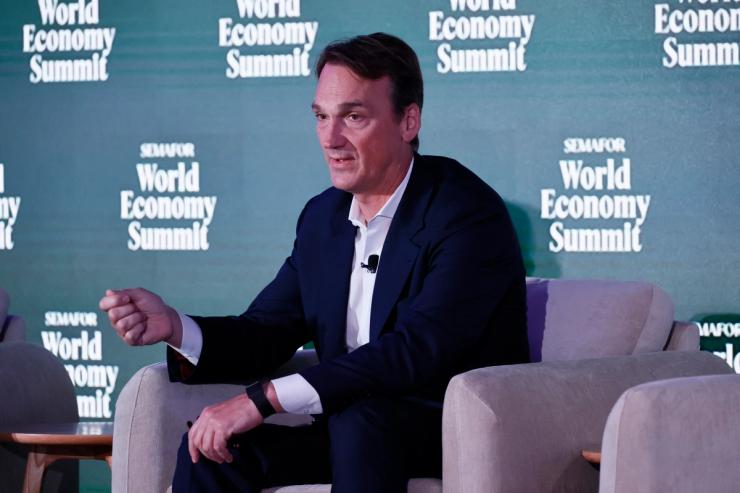The News
The controversial GENIUS Act that sets a regulatory framework for stablecoins but drew some ire from banks over security concerns could actually create an “opportunity” for the industry, said Cam Fowler, CEO of Early Warning, which owns payments bank partner Zelle.
“The GENIUS Act is quite monumental in that it sets out at least a clear path for thinking about the topic, how it should work, what the rules generally will be,” said Fowler on Thursday at Semafor’s World Economy Summit in Washington, DC. “Obviously, we need to learn more about what the specific rules will be. But in general, we should be open and excited about another innovation,” as long as it benefits consumers, he added.
The executive stopped short of announcing any new stablecoin project at the company since Congress passed the GENIUS Act in June, saying his customers aren’t asking for it: “That’s not the question. The question is, ‘When can I do certain things? When can I have higher limits so I can pay my rent, so I can pay more employees... when potentially could I move [money] internationally?’”
Zelle has more than 150 million users, making four billion transactions a year through its 2,200 partner banks, according to Fowler.
Still, the comments suggest Early Warning’s openness to innovations that the GENIUS Act could allow.
Know More
The company, whose products include Zelle and the Paze digital wallet, fell under the Biden administration’s scrutiny over alleged fraud and consumer protection concerns. The Trump administration’s Consumer Financial Protection Bureau eased some of that pressure by dropping the previous administration’s lawsuit against Early Warning and three major partner banks. The White House also significantly weakened the power of that agency, allowing financial firms to potentially operate with less regulatory oversight.
However, Fowler did not praise the shift in governance.
Regulation should be “clear, consistent, consumer-oriented — ideally with a longer term,” he said. On the whiplash that comes from changing presidential administrations and their respective priorities, he added: “The pendulum [swing] doesn’t help or serve anyone.”



